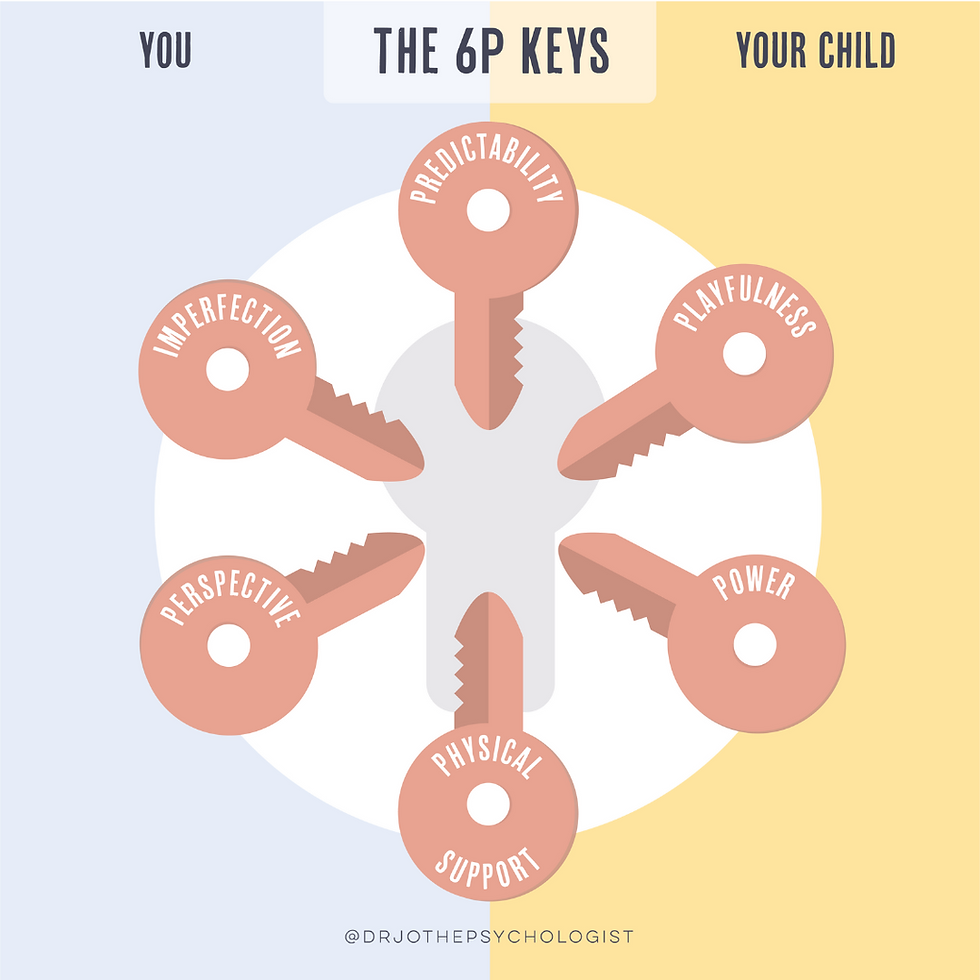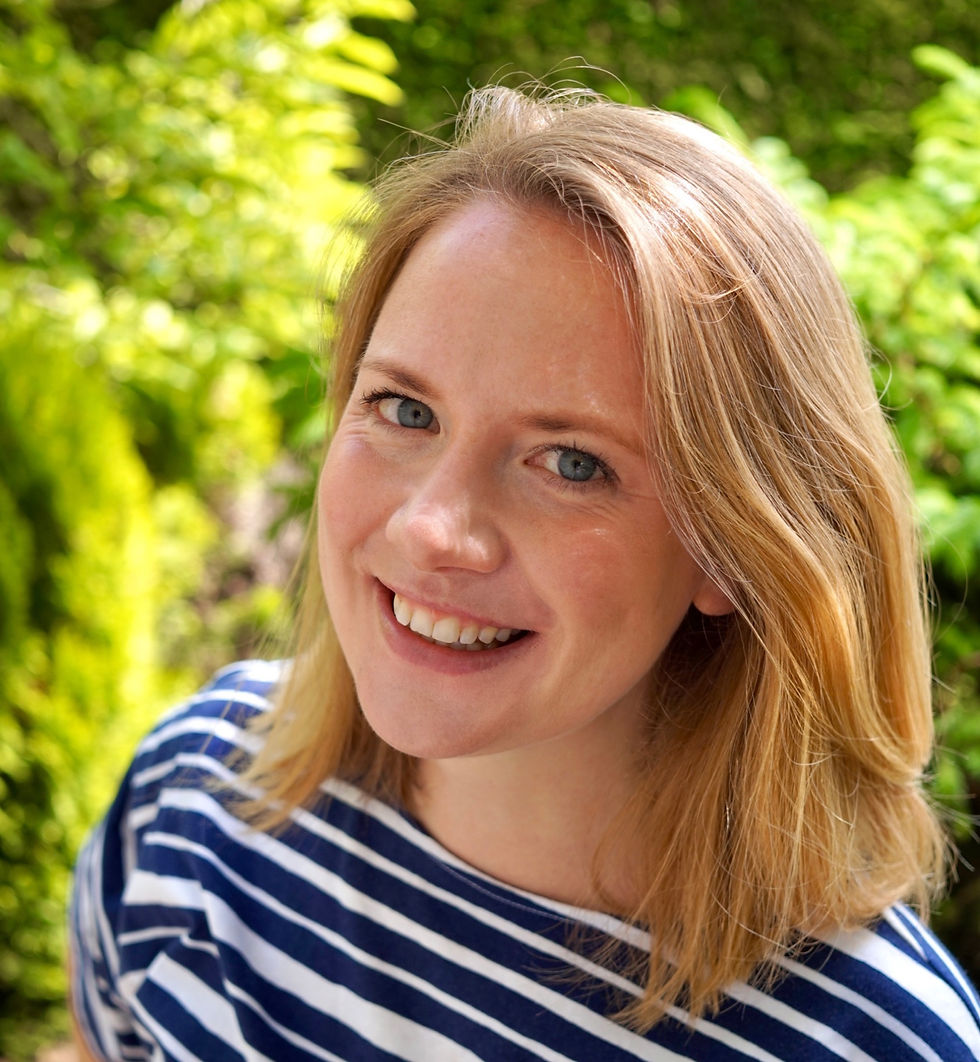Why I don’t talk about Gentle Parenting
- Jun 19, 2025
- 7 min read
Updated: Nov 16, 2025
The term "Gentle Parenting" seems to be everywhere nowadays, and everyone seems to have an opinion. Some parents are all for it - seeing it as a progressive way of raising children, a counter-balance to what they experienced growing up. Others feel it takes modernity too far, and results in either a lack of boundaries, or anxious helicopter parenting, or both.
But what IS "gentle parenting"?

What is Gentle Parenting?
Part of the problem is that the term “gentle parenting” is misunderstood or at least construed differently by different people.
The concept of gentle parenting, and other named parenting approaches such as "positive parenting" or "attachment parenting", came as a backlash against the behavioural parenting approaches favoured in previous generations. The “my way or the highway” authoritarian style, or one focused heavily on rewards versus punishments to get compliance.
These new parenting labels tend to be variations on a theme. At their root, they aim to prioritise the emotional connection we have with our children, foster our children’s developing sense of self, and create a respectful relationship where we balance listening to our children while providing clear, calm leadership. In the academic literature this is called “authoritative parenting” and there is solid research evidence that this approach leads to the best social, emotional and even academic outcomes for children. It also leads to better mental health outcomes for parents. It does not mean "getting things right" all the time - it's a general compass direction.
Each label, such as gentle parenting, is "marketed" in a different way by different people, and this causes a number of issues.
So, obviously this is good for kids. The problem is that the world of “branded” parenting styles can be highly confusing. Each label, such as gentle parenting, is "marketed" in a different way by different people, and this causes a number of issues.
The problems that parenting labels can cause
Firstly, parents are often holding themselves to impossible standards of what they think is gentle parenting. The picture of perfection we see and read about suggests that parents must be highly vigilant about attending to every need and emotion of their child. They must word things in exactly the right way, and respond perfectly every time any issue arises. They must be calm at all times and "co-regulate" with their kids. You get the picture.
None of this is true - but believing it can lead to anxiety and self-doubt for parents. It can also mean parents find teaching boundaries tough, because they can trigger difficult emotions in their child and themselves that parents can struggle to cope with.
This anxious situation can veer towards "permissive parenting", where the lines of responsibility between child and parent can be blurred. If children observe that their emotions can often sway their parent's decision making, they may learn that emotions are powerful and scary, rather than understood and contained. Unpredictability in how a parent might respond (because of their own uncertainty of what to do) can inadvertently contribute to their behaviour being more dysregulated - fuelling a vicious cycle for parents.
However, given the misinformation out there, it's hardly surprising that parents are full of self-doubt and fear "getting it wrong".

Parents often feel frightened when they read about concepts such as attachment problems, or childhood trauma. Although they can seem to be quite straightforward, these issues are full of complexity and nuance which is difficult to convey on social media or in a short article. Parents often perceive elements of these in their own circumstances, and then mistakenly worry that not getting things exactly "right" will damage their kids. Parenting ideas on social media tend to be snapshots, yet parents can feel that they are hard and fast rules that must be followed in order to avoid harm, rather than flexible suggestions. On the other hand, some information out there does explicitly and deliberately reinforce parents' fears, and so it is understandable that many of us don't know what to believe.
They worry that not getting things exactly "right" will damage their kids - and some of the information out there does explicitly reinforce this fear.
Even when parents DO feel confident about how they are parenting, they can often feel judged by others around them. Some children will benefit from a “gentler” approach than others, and on the whole parents have a good instinct for what their child needs - but society may not agree.
Gentle parenting "scripts" may often feel overwhelming or condescending to neurodivergent children and then parents may feel confused as to why they don't "work". Neurodivergent children often need a different parenting style and specific tools to support them, which may not fit with what society deems to be "acceptable" or "good parenting".
Thankfully, the neurodivergent parent community is now pushing back against this form of parent shaming and is embracing a flexible, tailored approach that works for their children. However, this is not the case for all families. Many parents may not be aware that their child is neurodivergent, or may feel a great deal of shame around the parenting choices and adaptations they make for their child for this, or any other reason.
We can feel a huge amount of shame when old patterns show up in our parenting, because these are the most well-worn pathways in our brains and are the "go to" when we're stressed.
All this fear, self-doubt and judgement means parents attempting to "gentle parent" may become even more hesitant in their parenting, but also more reactive, because they are so nervous about "messing up" their children that any sign of difficult behaviour signals failure and triggers their threat mode.
Parents also often feel a huge pressure to “break” intergenerational parenting cycles. We can feel a huge amount of shame when old patterns show up in our parenting, because these are the most well-worn pathways in our brains and are the "go to" when we're stressed.
All this can feed a vicious cycle where parents can feel increasingly out of control of managing their child’s behaviour and emotions - and their own.

When parents compare their daily reality to what they see on social media, or what they perceive other parents around us to be doing, it really just is too much pressure all round. The lack of a village means we are lacking in support, but also in seeing what real life looks like - a fertile breeding ground for guilt and shame.
Parenting in a constant state of threat is not sustainable, and if we throw in a load of unmet needs for parents too, it’s pretty obvious that "gentle parents" might burn-out.
Parenting in a constant state of threat is not sustainable, and if we throw in a load of unmet needs for parents too, it’s pretty obvious that "gentle parents" might burn-out. This is actually nothing to do with what gentle parenting was meant to look like - but everything to do with the pressures on modern parents.
So what can we do to change things?
What can we do instead?
Here are my suggestions of a few ways to break these cycles.
Using parenting labels like "gentle parenting" just seem to cause trouble, so I suggest we steer clear. In the scientific literature, the terms permissive, authoritarian and (the healthy one) authoritative - are well established, so if I have to use a description, I use those. The literature also gives us a very clear outline of what authoritative parenting looks like, and so this is what I coach parents in doing. Simple! Luckily, authoritative parenting is a very broad church with plenty of flexibility to be yourself, to meet the needs of your unique child, and to take all kinds of other factors into account; it allows for us to be real, imperfect, human parents.
Authoritative parenting is a very broad church with plenty of flexibility to be yourself, to meet the needs of your unique child, and to take all kinds of other factors into account; it allows for us to be real, imperfect, human parents.
I advise parents to unfollow any accounts or email lists that make them feel bad, anxious, or like they are going to damage their kids if they get things "wrong". You absolutely do not need this type of influence in your life, even if part of your brain is saying it's "good advice". If it's feeding your cycle of self-doubt, reactivity and guilt then it needs to get gone.
Focusing on our relationship with our child is always the number one priority. Parenting is not a exam you can ace or a medal you can win - it's a lifelong journey alongside another person. When parents feel lost, we always work on strengthening their connection with their child first.
Making real, honest connections with other parents can be magical. The phrase "shame dies when stories are told in safe spaces" couldn't be more true. If you can allow yourself to be a little vulnerable with others, you might find they reciprocate, and you start to realise other parents don't have it together, they aren't endlessly calm and patient with their kids, and we're all just humans doing their best. Even me!

How I can help
Because these issues come up so frequently in my work with parents, a few years ago, I began to develop a theoretical framework to help make sense of it - and direct us towards what can help.
This became my 6 P Parenting Keys Framework. It's a memorable plan of evidence-based strategies that tackle parental regulation and improve confidence, AND provide tools to help our kids listen to us in difficult boundary-setting moments. Because we need both.
It can help you break away from the confusing and overwhelming world of parenting advice, and get you smoothly back to being the parent you want to be.
It's a flexible, toolkit, not a list of rigid techniques or parenting scripts. this means you can tailor it to exactly what your family need. It helps you break away from the confusing and overwhelming world of parenting advice, and get you smoothly back to being the parent you want to be. You can read more about it here.

If you'd like to do a deeper dive, why not check out The Guilty Parent Club? We work through the framework step-by-step using audio podcasts and workbooks, and we link together in an online forum to share the realities of parenting and feel less alone. I offer a programme of live coaching through the framework for a small group, but a new self-guided option is opening this year, too.
Drop me a line if you have any questions, and I hope to see you there!
I hope this article has given you some food for thought. Please feel free to leave a comment below if you found it useful.

I'm Dr Jo Mueller, a British clinical psychologist specialised in working with parents around parenting and mental health, and neurodivergence.
You can follow me on Instagram @drjothepsychologist for regular tips for parents.
You can follow me and my colleagues @theneurodiversitypractice for more neurodiversity content for parents.
You can find out more about The Guilty Parent Club here.
If you'd like to work with me 1:1, you can book a free 15 minute consultation here.




Comments